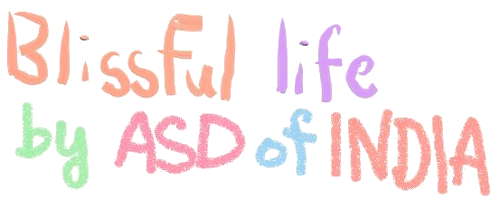How Many Genders Are There In Our Languages?
I stumbled on Trans 101 website today. The videos in there are literally the best I have seen in the past few weeks.
I'm embedding the first video, but there are 6.
Head over to the Trans 101 website for the rest.
I learned a lot of things while watching the videos. Reading them all in this post would take you longer than simply watching the video. So I'm not going to write about all that.
In the second video Margot makes a point about how she felt incredibly happy when her mother introduced her to others as her "daughter". That made me think about non-binary individuals. What word would they be happy about when their parent calls them that?
What about a non-binary parent? What should their child call them?
I soon realized that there are a lot of words, especially in the context of relationships, that are very much based on the (obsolete) binary concept of gender.
A quick search revealed a Washington Post column where a parent is confused on how to introduce their child. What caught my attention is not just the answer to that question. The question also included a reference to the orientation of the child. That made me realize how very problematic our language's poverty is when it comes to gender and sexuality. When a transgender male is attracted to females, are they called homosexual or heterosexual?*
Perhaps it is better to not name anything anything and just call it all a spectrum.
Perhaps it is useful to name a few things. I don't know.
Anyhow, there is this wiki on gender neutral English that's useful. And this writing guide is helpful for bloggers like me who have in the past abused repeating names as a way to avoid pronouns.
As an aside, while looking through the wiki I also remembered how I could never find a word to describe Swathi when filling out a form. Partner? Sounds like we're directing a company. Beloved? Who writes that on a form? Significant other? Too colloquial. Our languages really need to grow with the growth of civilizations.
Coming back to the point about written forms of communication. What happens when you want to write about someone and they are gender fluid and prefers to be referred by pronouns that match how they are feeling at any moment? I hope all fluid people are cool not to care about pronouns in such scenarios.
*What does orientation actually mean? Is someone's orientation determined by what gender expression they get aroused by? Is sexuality only about arousal?
There seems to be some answers in The Genderbread Person which is a cool website. They have broken "attraction" into sexual attraction and romantic attraction. Perhaps the concept of orientation needs to be thrown away altogether?
Now, there is one more unresolved thing in my head. It is about an umbrella term for all whose gender expression or gender identity are socially complicated by their anatomical sex and the societal expectations of whom they are attracted to based on that. LGBT doesn't include everyone. Queer is derogatory for some. LGBTQIA+ is the term I am thinking of using these days. But, this wiki has some alternatives.
What is pretty clear, though, is that our spoken language has to pick up a lot of these words.
If you like what you're reading, subscribe!

2 comments :
A key takeaway for me from this post is the difference between gender identity and (sexual) orientation.
We are not addressing the root cause for usage of wrong pronouns. When we have to address someone, we don't necessarily need to know or assert their gender identity or sexual orientation. Using generic pronouns would be most appropriate. For example, nobody needs to know/assert the identity of someone's child all the time, they could be provided with the information on demand. Using generic terms respect gender identity privacy and keep conversations within context.
Shifting to generic addressing creates an abstraction and helps reduce gender discrimination even among cis-gendered people.
Often, I feel that the only way to empower different groups or classes of people is not to provide more opportunity to oppressed groups but to make things equal by removing the classification from irrelevant systems, while also respecting their identity. This may be more relevant on a different discussion.
English is a language that has seen widespread usage owing to its versatility and flexibility. It adapted and swallowed a large set of root words from other languages to achieve this. For us to keep evolving how we express, it's important to adapt our language actively and bring about a change.
Thinking of the origin of trans-gender and the cause for gender fluidity, I think it is a part of evolution. We are make up of DNA from two parents(opposite gendered) and it mixes and matches. As this process progresses, (cis)gender identity dilutes and we end up with gender fluidity. So I see gender fluid people as a more evolved version of people.
While gender identity and expression are tolerant towards fluidity, the principle laws of nature are still cis. Which is why sexual orientation still conforms to the cis model. Which is every person either like males, females, neither or both. I see this as a problem to my previous observation that gender identity will dilute as things progress. If everybody have to revert to the cis model when it comes to sexual orientation and reproduction, things can get a little messy.
There is a conversation about sex being a spectrum https://blogs.scientificamerican.com/sa-visual/visualizing-sex-as-a-spectrum/
I think eventually, technology will dilute sex even when it comes to reproduction. It will be possible for everyone, no matter what their DNA, to have children of their own DNA.
Post a Comment